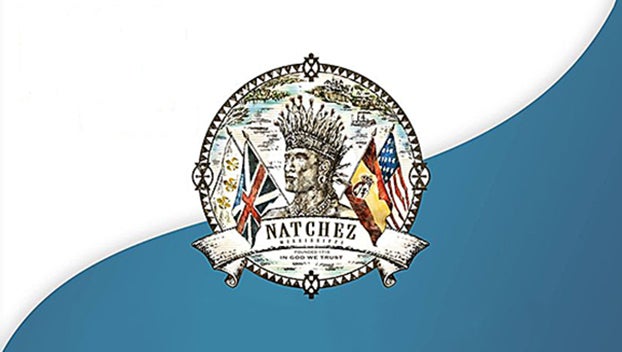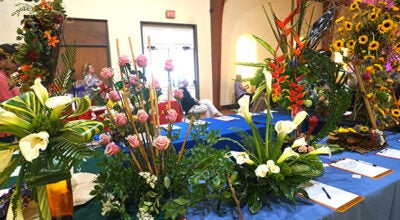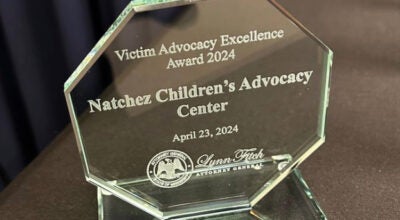Rendezvous is an escape to the past
Published 12:04 am Sunday, November 4, 2012

LAUREN WOOD / THE NATCHEZ DEMOCRAT — Emily Hootsell, 13, left, Katie Wheat, 13, center, and Regina Hootsell work on making hoops for the early 1800s game called “Graces” Saturday morning at the Fairfield Rendezvous in northern Adams County.
NATCHEZ — Most days, Stump is a working professional who lives in St. Martin Parish and goes by the name Ric Wallace.
But not today. Today, he’s Stump, a former mountain man-turned-Acadian settler in 1812 Louisiana on a pilgrimage to the Fairfield Rendezvous in northern Adams County.
Part a living history encampment and part conscious effort to preserve traditional American survival skills, for the last 25 years the rendezvous has been meeting on the hill at Fairfield Plantation.
Participants wear period-specific clothing and camp out the way settlers in the southeastern United States would have. They cook over an open flame, sleep in canvas tents and have contests to see who can best throw a tomahawk or shoot a muzzle-loading long gun; At night they pass a bottle around a campfire and sing along with dulcimers and psalterys. The rendezvous lasts for 10 days.
For Stump — that’s Wallace’s camp name — the encampment is an escape from the everyday work he does as an engineer.
“This is not engineering; this is something very different,” he said. “This is a hobby that never stops. There is always more research to do, always more ways to do a better interpretation of history.”

LAUREN WOOD / THE NATCHEZ DEMOCRAT — James Vaughn of Birmingham finishes putting a leather handle on Joseph Scott’s knife Saturday morning at the Fairfield Rendezvous. The event is in its 25th year, and is open to the public today.
Unlike a living history or juried encampment, where the participants are sometimes subject to almost extreme historical protocols, the rendezvous re-enactors are able to get away with such historical faux pas as having non-bone buttons. Sporting a tri-cornered hat and Franklin-style spectacles, James Vaughan of Birmingham, Ala., said the participants are given a little wiggle room, but they still wear hand-made clothes and try their hardest to be accurate rather than depict Hollywood’s version of history.
“Here, the people are more interested in the spirit of what we are doing,” he said.
The campers aren’t portraying a uniform time or place in history, individually portraying how someone from such locales as 1750s Tennessee or 1840s Mississippi might have dressed.
But don’t make the mistake of thinking of them as characters in costumes.
“Costumes are for actors,” said Finley Hootsell, a local who has been involved with the rendezvous since the beginning. “These are our clothes.”
Though the rendezvous is a chance to remember the now long-past cultures of America’s first western frontier, Hootsell said it has a practical purpose as well.
“We are trying to keep alive the skills you can actually use in an emergency situation,” he said.
“There is something about having these skills and having the confidence that comes with knowing them that, if something ever goes wrong, we can survive until help comes.”
And those who get involved with the rendezvous often find themselves drawn back year after year. Hootsell said this rendezvous represents three generations of campers, and in the past participants have officiated over two weddings and a funeral.
The rendezvous is open to the general public today, but after that is a closed event.





